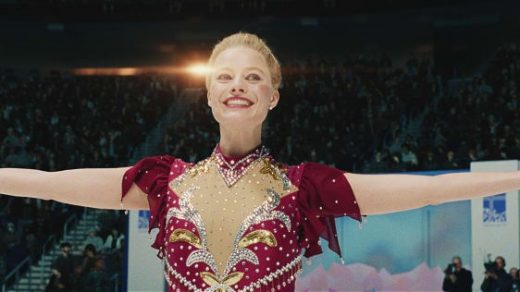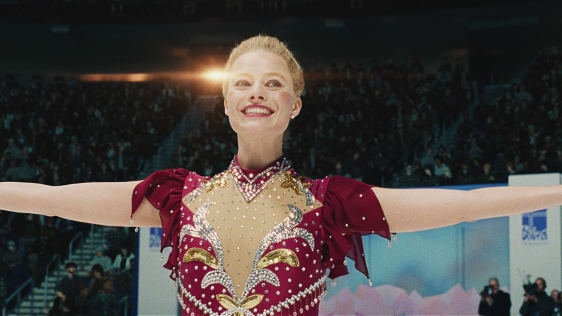“It would’ve never survived the studio system.” How Creative Control Saved “I, Tonya”
After penning a series of romantic comedies and dramedies–2015’s Love The Coopers (starring Diane Keaton and a young Timothée Chalamet), 2007’s P.S. I Love You (with Hillary Swank and Gerard Butler), and 2001’s Kate & Leopold (starring Meg Ryan and Hugh Jackman)–screenwriter Steven Rodgers was ready to take on a project that was the “polar opposite” of what he’d done in the past.
He found it in I, Tonya, the biopic with faux-documentary snippets about Olympic figure skater Tonya Harding that has earned Oscar nominations for Margot Robbie (Best Actress) and Allison Janney (Best Supporting Actress).
The story of the 1994 attack on Harding’s arch-rival Nancy Kerrigan, for which Harding (Robbie), her then-husband Jeff Goolily (Sebastian Stan), and her bodyguard (Paul Walter Hauser) were blamed, has become as much legend as fact in the years since it happened. But Rodgers opened up a new interpretation of the story by presenting the many conflicting points of view in a way that managed to be both comedy and tragedy.
Fast Company sat down with Rodgers to talk about how I, Tonya came about, writing a part for Janney, and how the Harding story comments on the world we live in now.
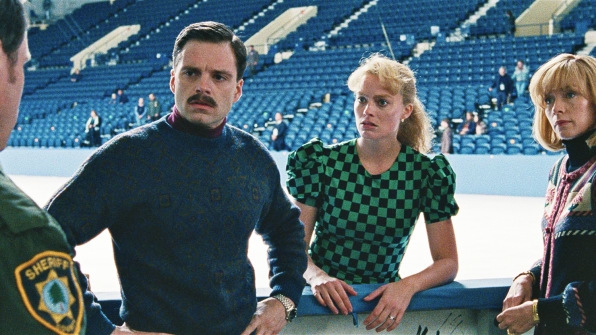
What first attracted you to this project?
There were things in the story about truth and the perception of truth and how we change the narrative so we can live with ourselves. But it’s also about class and about the media. And so I thought, there’s a lot in the story. So I went out on the Tonya Harding website to see if her life rights were even available. I called the number for her agent and it was a Motel 6. And I just thought, I’m in. I don’t know where this is going to take me, but I’m in.
When you were interviewing the real-life Harding and Goolily, what was the process like of taking on the role of reporter and presenting many sides?
I’ve never interviewed anybody, but I didn’t tell them that. So I interviewed them and their stories were so wildly different and they remembered very little the same. And so I thought, well, that’s my in: I’ll just put everybody’s point of view up there and let the audience decide what happened. And the more I researched it, the more contradictory everything was. And, you know, I felt like even if the movie never gets made, my life is more interesting because I did this. It’s a very tragic story. It’s a very crazy story. It’s true-ish, depending on whose point of view you’re in.
It’s interesting how of this moment this story ends up being–we’re reckoning with the same thing, what’s true and what’s not true, what’s believable.
I know! And I wrote this before Trump. [I, Tonya] is a cautionary tale because in terms of the media, it was the first time there was a 24-hour news cycle to fill. And so all of a sudden people didn’t care about being accurate. They cared about filling [air time]. Back then, you would never, ever give your opinion to news, you would just give the facts. Now, you can watch a whole entire network that’s just about your opinion on the news.
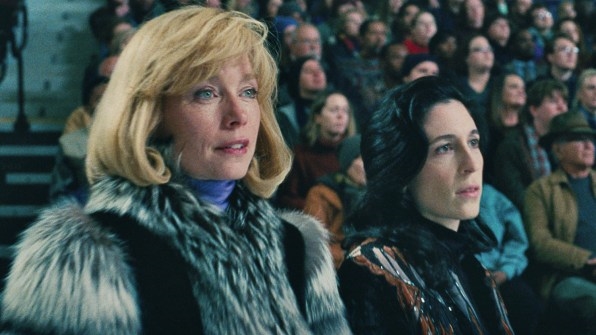
You’re a producer on this movie as well. Did that give you more control?
I’ve been kicking around a long time. When I first started I was twenty-nothing and I didn’t know what I didn’t know. I also didn’t know how to protect myself. I thought it was normal to be rewritten and have a very watered down version of what I wrote. I am embarrassed to say it took me way too long to realize, oh, I can actually have more control. And on this one, because the tone was so specific, I knew it would’ve never survived the studio system. So when I went out with a spec script.
I had several caveats, and one was Allison Janney playing the part that I wrote for her. And I wanted it in writing, because I’ve written many parts for Allison in the past, and they’d say, “Oh yeah, we love her,” and then not get her in the movie. And I went out with it, [on the condition that she be] attached before Allison had even read the script or even agreed to do it. I just gambled, because I wanted it to work out.
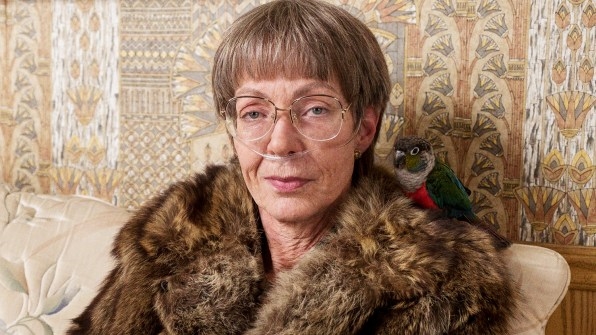
You wrote the part of Tonya’s mother for Allison Janney. Why her in particular?
I’ve known her since I was a small child. We went to the Neighborhood Playhouse together, which is an acting school here in New York. I remember the first time I saw her act, we weren’t in the same class but there was one day where classes got combined, and I thought I was really good. I thought I was the one. She came in for an exercise and was so emotionally powerful that we all just kind of looked at each other like, That’s what we’re supposed to be doing? I think, like, half the kids quit that day. So I always knew how really good she was and I just felt like she hasn’t had that opportunity in movies to show what she can do. And so I wrote a part for her that was so polar opposite of who she is that it would be undeniable that here’s a very powerful performer.
How has this experience shaped what you want to work on next?
I found out I’m a control freak. And contractually, because there was heat on the script, I got it in my contract for the very first time: No one could rewrite me without my consent. Which was huge, but the irony is I didn’t need it. We all saw the movie the same way, we all wanted to make the same movie. [The other people involved] had no interest in rewriting me. I hate irony when it’s directed at me.
The Academy Awards will air on Sunday, March 4 at 8 p.m. EST on ABC.
(46)

